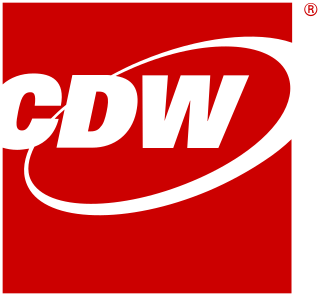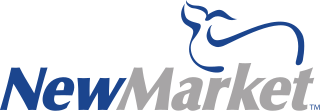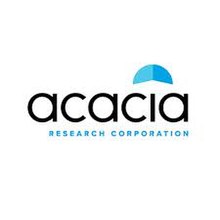
A patent is a type of intellectual property that gives its owner the legal right to exclude others from making, using, or selling an invention for a limited period of time in exchange for publishing an enabling disclosure of the invention. In most countries, patent rights fall under private law and the patent holder must sue someone infringing the patent in order to enforce their rights.

Eolas is a United States technology firm formed as a spin-off from the University of California, San Francisco (UCSF), in order to commercialize UCSF's patents for work done there by Eolas' co-founders, as part of the Visible Embryo Project. The company was founded in 1994 by Dr. Michael Doyle, Rachelle Tunik, David Martin, and Cheong Ang from the UCSF Center for Knowledge Management (CKM). The company was created at the request of UCSF, and was founded by the inventors of the university's patents.
Rambus Inc., founded in 1990, is an American technology company that designs, develops and licenses chip interface technologies and architectures that are used in digital electronics products. The company is well known for inventing RDRAM and for its intellectual property-based litigation following the introduction of DDR-SDRAM memory.

Patent infringement is the commission of a prohibited act with respect to a patented invention without permission from the patent holder. Permission may typically be granted in the form of a license. The definition of patent infringement may vary by jurisdiction, but it typically includes using or selling the patented invention. In many countries, a use is required to be commercial to constitute patent infringement.
Invitae Corp. is a biotechnology company that was created as a subsidiary of Genomic Health in 2010 and then spun-off in 2012.
The United States is considered to have the most favorable legal regime for inventors and patent owners in the world. Under United States law, a patent is a right granted to the inventor of a (1) process, machine, article of manufacture, or composition of matter, (2) that is new, useful, and non-obvious. A patent is the right to exclude others, for a limited time from profiting of a patented technology without the consent of the patent-holder. Specifically, it is the right to exclude others from: making, using, selling, offering for sale, importing, inducing others to infringe, applying for an FDA approval, and/or offering a product specially adapted for practice of the patent.

In international law and business, patent trolling or patent hoarding is a categorical or pejorative term applied to a person or company that attempts to enforce patent rights against accused infringers far beyond the patent's actual value or contribution to the prior art, often through hardball legal tactics Patent trolls often do not manufacture products or supply services based upon the patents in question. However, some entities, which do not practice their asserted patent, may not be considered "patent trolls", when they license their patented technologies on reasonable terms in advance.
NTP, Inc. is a Virginia-based patent holding company founded in 1992 by the late inventor Thomas J. Campana Jr. and Donald E. Stout. The company's primary asset is a portfolio of 50 US patents and additional pending US and international patent applications. These patents and patent applications disclose inventions in the fields of wireless email and RF Antenna design. The named inventors include Andrew Andros and Thomas Campana. About half of the US patents were originally assigned to Telefind Corporation, a Florida-based company partly owned by Campana.

CDW Corporation, headquartered in Vernon Hills, Illinois, is a provider of technology products and services for business, government and education. The company has a secondary division known as CDW-G, devoted solely to United States governmental entities, such as K-12 schools, universities, non-profit healthcare organizations, State & Local and the Federal government.
Pall Corporation, headquartered in Port Washington, New York and a wholly owned subsidiary of Danaher Corporation since 2015, is a global supplier of filtration, separations and purification products. Total revenues for fiscal year 2014 were $2.8 billion, with $103 million spent on R&D. Pall Corporation's business is split into two broad groups: Life Sciences (c.51%) and Industrial (c.49%). These business groups provide fluid management products and systems to customers in biotechnology, pharmaceutical, transfusion medicine, energy, electronics, municipal and industrial water purification, aerospace, transportation and broad industrial markets.
This is a list of legal terms relating to patents and patent law. A patent is not a right to practice or use the invention claimed therein, but a territorial right to exclude others from commercially exploiting the invention, granted to an inventor or their successor in rights in exchange to a public disclosure of the invention.

Dover Corporation is an American conglomerate manufacturer of industrial products. The Downers Grove, Illinois-based company was founded in 1955. As of 2021, Dover's business was divided into five segments: Engineered Products, Clean Energy and Fueling, Imaging & Identification, Pumps & Process Solutions and Climate and Sustainability Technologies. Dover is a constituent of the S&P 500 index and trades on the New York Stock Exchange under "DOV". Dover was ranked 433rd in the 2022 Fortune 500. The company relocated its headquarters to Illinois from New York in mid-2010.
DataTreasury, located in Plano, Texas, United States, develops, acquires and licenses technology for secure check image capture and storage. As of 2010 the company had 2 employees, about 1000 shareholders and had generated over $350 million in licensing revenue in the previous four years.
Opposition to software patents is widespread in the free software community. In response, various mechanisms have been tried to defuse the perceived problem.

Vringo was a technology company that became involved in the worldwide patent wars. The company won a 2012 intellectual property lawsuit against Google, in which a U.S. District Court ordered Google to pay 1.36 percent of U.S. AdWords sales. Analysts estimated Vringo's judgment against Google to be worth over $1 billion. The Court of Appeals for the Federal Circuit overturned the District Court's ruling on appeal in August 2014 in a split 2-1 decision, which Intellectual Asset Magazine called "the most troubling case of 2014." Vringo appealed to the United States Supreme Court. Vringo also pursued worldwide litigation against ZTE Corporation in twelve countries, including the United Kingdom, Germany, Australia, Malaysia, India, Spain, Netherlands, Romania, China, Malaysia, Brazil and the United States. The high profile nature of the intellectual property suits filed by the firm against large corporations known for anti-patent tendencies has led some commentators to refer to the firm as a patent vulture or patent troll.

Netlist Inc. is a Delaware-registered corporation headquartered in Irvine, California that designs and sells high-performance SSDs and modular memory subsystems to enterprise customers in diverse industries. It also manufactures a line of specialty and legacy memory products to storage customers, appliance customers, system builders and cloud and datacenter customers. Netlist holds a portfolio of patents in the areas of server memory, hybrid memory, storage class memory, rank multiplication and load reduction. Netlist has more than 120 employees and an annual revenue of US$142.4 million as of 2021 The stock was added to NASDAQ in late 2006. In the initial public offering of its common stock in 2006, Netlist sold 6,250,000 shares at $7.00 each. On September 26, 2018, Netlist announced they were moving from NASDAQ and currently trades on the OTCQB.

Viaspace is a clean energy company focused on commercializing technologies from NASA, Caltech, University of Southern California and the United States Department of Defense. The company operates in the alternative energy, renewable energy, and chemical sensing sectors. The company is associated with the Jet Propulsion Lab (JPL) and the California Institute of Technology through its CEO, Dr. Carl Kukkonen.

The Leahy–Smith America Invents Act (AIA) is a United States federal statute that was passed by Congress and signed into law by President Barack Obama on September 16, 2011. The law represents the most significant legislative change to the U.S. patent system since the Patent Act of 1952 and closely resembles previously proposed legislation in the Senate in its previous session.

NewMarket Corporation is a publicly traded, company that primarily serves the petroleum additives industry. The company is based in Richmond, Virginia, and has operations in North America, Latin America, Europe, the Middle East and Asia Pacific. The company's predecessor, the Albemarle Paper Manufacturing Company, was founded in 1887.
Zi Corporation was a software company based in Calgary, Canada. The company was founded on 4 December 1987 as Cancom Ventures Inc, owning an Edmonton secretarial college and an industrial equipment rental business. On 30 August 1989 the name was changed to Multi-Corp Inc. In 1993, board member Michael Lobsinger took control of the company, became CEO, and turned the company towards the telecommunications industry, purchasing several privately held companies involved in the telecommunications businesses, and in November 1993, Multi-Corp entered into an exclusive licensing agreement with Eric Chappell for a stroke-based Chinese text entry system which they referred to as the Jiejing Licenses. A wholly owned subsidiary, Ziran Developments Inc, was formed to handle the Chinese text entry business.










